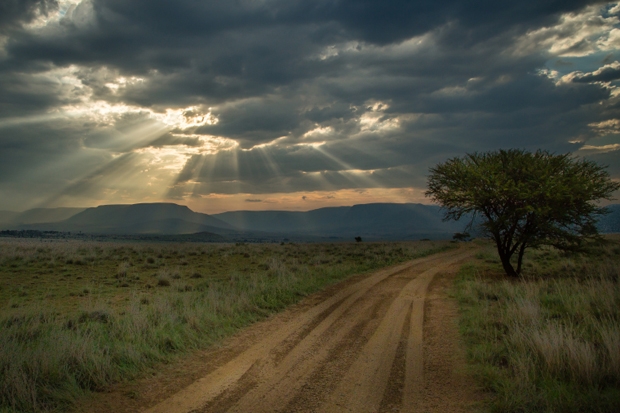Trencherman was first published in Afrikaans in 2006 and translated into English for a South African readership shortly afterwards, but has only now found a UK publisher. Eben Venter — one of the notable voices in white South African writing post-Apartheid — has been ‘temporarily’ based in Australia for more than two decades, but returns to his home for stories. You can see why.
After Disgrace, J.M. Coetzee emigrated to Australia — and hasn’t published a decent novel since. He evacuated his subject. For Africa-born whites, the one thing worse than staying is leaving. The left brain urges you to settle in a safe economy with prospects, where the right brain dies. Africa’s contradictions are the author’s larder, hung with the biltong of sinewy emotions.
Out of such emotions Venter created this modern retelling of Conrad’s Heart of Darkness. Marlouw, an Afrikaner in Melbourne, is persuaded by his sister to fly back to SA to retrieve his prodigal nephew Koert, who has gone to ground on Ouplaas, the old family farm. Venter sketches a dystopian near-future South Africa where the state has failed, gangs rule and all is corrupt, derelict, cut off, impoverished and diseased.
On Ouplaas, the Africans who were handed the farm by Marlouw’s family decades earlier have multiplied: ‘Children to the left and the mongrels to the right.’ They quarrel about booze and sex, the last of the sheep are dying, the tractor’s kaput, boreholes are broken and it’s overgrazed. Marlouw asks a youth in gold trainers:
‘How can you survive on a farm where there’s no more water? You’ll have to leave. Aren’t you worried about that?’
He spits on his index finger and buffs his Nikes. ‘No…’
Yet Marlouw finds the Africans in thrall to Koert, looking to him for a supply of nyama (meat), Bell’s whisky and the use of his Nintendo. Masked men deny Marlouw access to his nephew, who barricades himself in a lair with the old family furniture.
Marlouw is told: ‘The whites who’ve remained in Africa have become crafty, always showing their teeth… They swallow you whole.’ Afrikaners once felt a sense of manifest destiny to rule the country, God’s gift to their volk. Yet after 13 generations there, Marlouw says of his family: ‘It was a culture that never suited this land.’ Now slum-dwellers are desecrating the family cemetery. ‘I was afraid we Afrikaners would be wiped out, roots and all. That’s the heart of my fear.’ The final collapse on Ouplaas happens as the nyama runs out and Koert appears‚ an impressively disturbing figure.
I’m not sure that this variation on the theme of Heart of Darkness in a modern Africa entirely works though. Venter is best when he drives for something all his own. This is a riff not about the ravages of western civilisation in Africa but about the fate of Afrikaners and their language:
Like the Jews, the Afrikaners have forsaken themselves to a mighty diaspora and left the blood river for good; though unlike the Jews, they even cast their language on the waters like stale bread…
We might ask where Venter is coming from. As with Coetzee, a binary explanation fails to capture the nuance of experience. In one interview, Venter has said: ‘I think Koert is the guy readers should be worried about, not the black people who’ve screwed up their farm.’ In another, he complains that in post-Mandela South Africa
people with little or no education are led by semi-literate majesties who tell them to shower after they’ve had sex without protection, to bring on the machine guns, to eat beetroot if they’re HIV-positive.
It’s hard to argue with either of these perspectives.







Comments